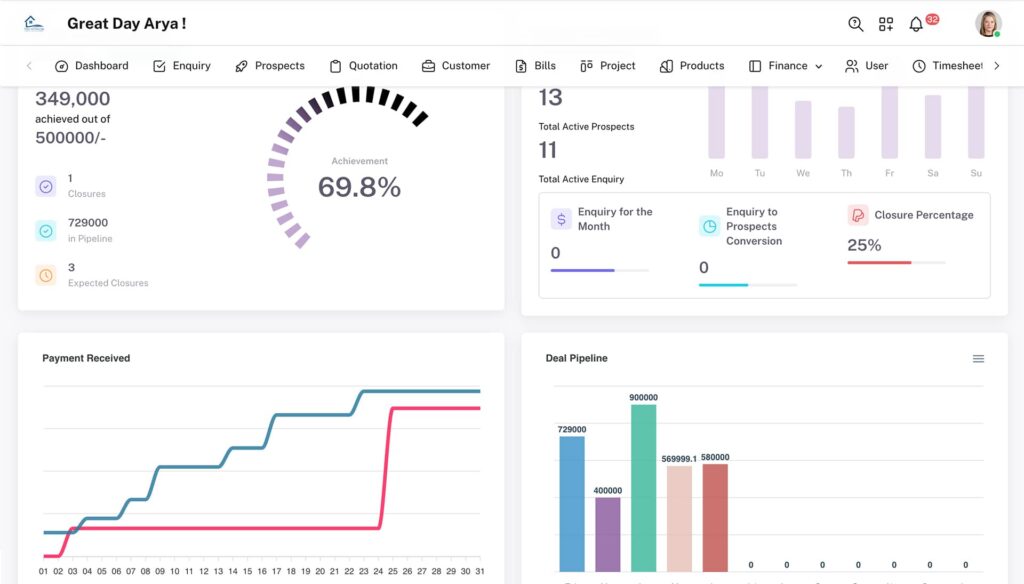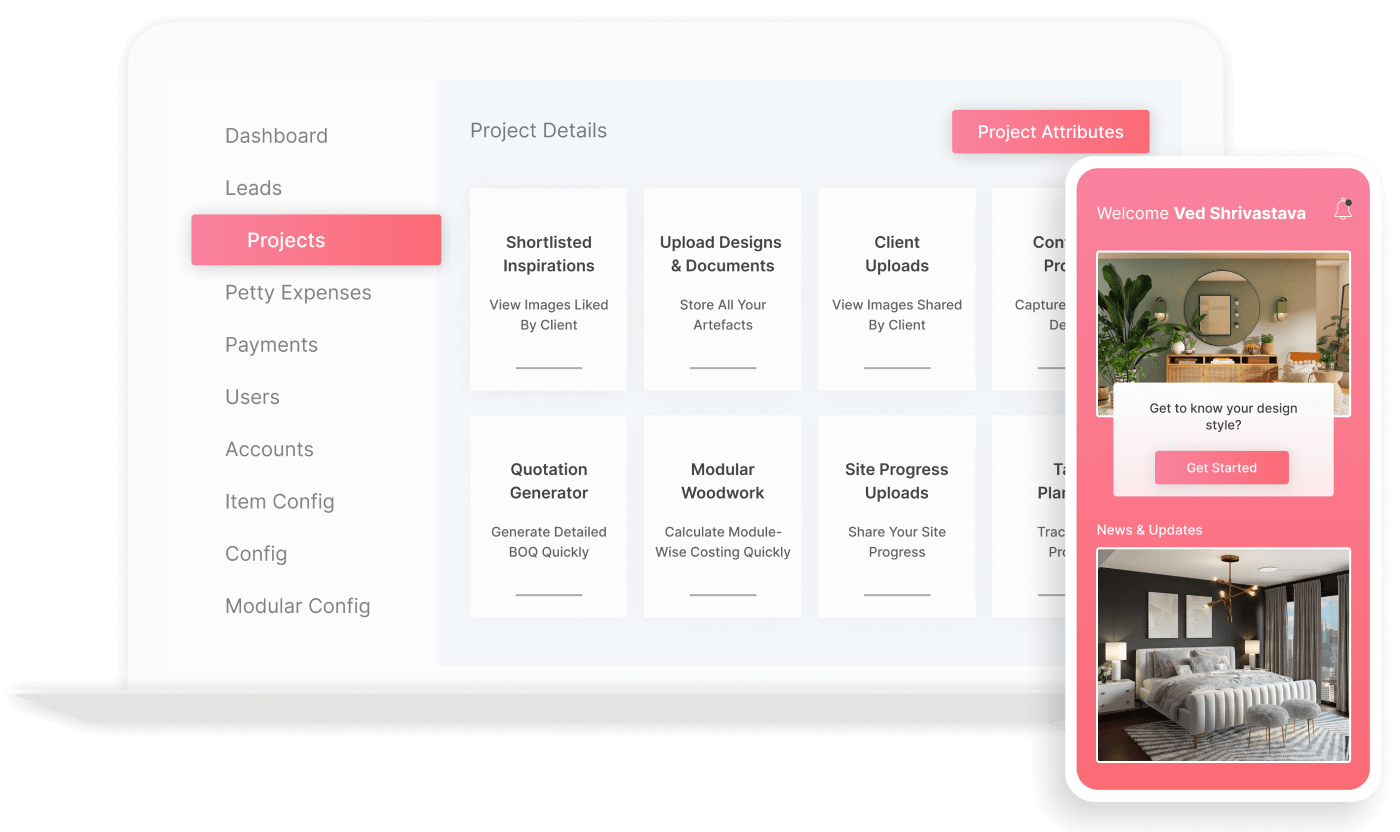CRM for interior designers has emerged as a transformative tool, revolutionizing the way professionals manage client interactions, projects, and finances. By harnessing the power of CRM systems, interior designers can streamline their operations, enhance communication, and elevate their client experiences.
Interior designers face unique challenges in managing their businesses, from juggling multiple projects to maintaining strong client relationships. CRM systems provide tailored solutions to these challenges, offering a comprehensive suite of features designed to streamline workflows and foster seamless client engagement.
Understanding the Unique Needs of Interior Designers

Interior designers face unique challenges in managing client relationships, projects, and finances. They need a system that can help them track client preferences, manage project timelines, and invoice clients efficiently.
CRM systems are designed to meet the specific needs of businesses. They can help interior designers improve their customer service, streamline their workflow, and increase their profitability.
Client Relationship Management
Interior designers need to be able to track client preferences, communication history, and project status. CRM systems can help them do this by providing a centralized database for all client information.
- Track client preferences and communication history
- Manage project timelines and budgets
- Invoice clients and track payments
Key Features of CRM for Interior Designers
CRM software designed specifically for interior designers offers a comprehensive suite of features to streamline their operations and enhance client relationships. These features include:
Contact Management
- Centralized storage of customer contact information, including name, email, phone number, and address
- Tracking of customer interactions, including phone calls, emails, and meetings
- Segmentation of customers based on demographics, preferences, and project history
Project Tracking
- Creation and management of project timelines, budgets, and tasks
- Collaboration with team members and clients on project details
- Tracking of project progress and completion status
Lead Generation
- Integration with lead generation tools to capture potential customer information
- Lead qualification and nurturing to identify and convert promising leads
- Automated lead follow-up and communication
Financial Reporting
- Tracking of project revenue, expenses, and profitability
- Generation of financial reports to monitor financial performance
- Integration with accounting software for seamless data transfer
Benefits of Using CRM for Interior Designers

Implementing a CRM system can significantly enhance the operations of interior designers by streamlining communication, boosting efficiency, and optimizing project management. These benefits ultimately translate into improved client satisfaction, increased productivity, and business growth.
Effective client communication is crucial for interior designers. CRM systems provide a centralized platform for managing all client interactions, including emails, phone calls, and appointments. This enables designers to track the progress of each client’s project, ensuring that every request and concern is addressed promptly.
Furthermore, CRM systems automate many administrative tasks, such as scheduling appointments, sending reminders, and generating invoices. This automation frees up designers to focus on more value-added activities, such as developing creative concepts and managing projects. The increased efficiency leads to faster project completion times and reduced operating costs.
Enhanced Project Management
CRM systems provide comprehensive project management capabilities that enable interior designers to track the progress of each project in real-time. Designers can assign tasks to team members, set deadlines, and monitor the status of each task. This centralized view of project progress allows designers to identify potential bottlenecks and make timely adjustments to ensure timely completion.
Considerations for Choosing a CRM System

Selecting the right CRM system is crucial for interior designers. Here are key factors to consider:
Ease of Use
The CRM system should be intuitive and easy to navigate, enabling designers to quickly access and manage client information.
Integration Capabilities, Crm for interior designers
Consider a CRM system that seamlessly integrates with other business tools, such as email, project management, and accounting software.
Scalability
As your interior design business grows, the CRM system should be able to scale to accommodate more clients, projects, and team members.
Best Practices for Implementing CRM for Interior Designers
To successfully implement a CRM system, interior designers should follow a strategic approach that involves proper planning, data organization, workflow automation, and effective user adoption.
Data organization is crucial for efficient CRM implementation. Interior designers should establish a standardized data structure to ensure consistency and ease of access. This includes creating custom fields and categories tailored to the specific needs of interior design businesses, such as project types, client preferences, and vendor information.
Workflow Automation
Workflow automation can streamline tasks and improve productivity. Interior designers can automate repetitive processes such as sending follow-up emails, scheduling appointments, and generating invoices. This frees up time for more value-added activities like client consultations and project planning.
User Adoption
User adoption is essential for successful CRM implementation. Interior designers should provide comprehensive training and support to ensure that all team members are comfortable using the system. This includes creating user guides, conducting workshops, and offering ongoing technical assistance.
Case Studies and Success Stories
Real-life examples of interior designers who have successfully implemented CRM systems can provide valuable insights. These case studies showcase the challenges faced, the solutions found, and the tangible results achieved.
One notable case study is that of Studio 1214, an interior design firm based in New York City. Before implementing a CRM system, the firm struggled with managing client relationships, tracking project progress, and coordinating team communication. After implementing a CRM system tailored to their specific needs, Studio 1214 experienced significant improvements in client satisfaction, project efficiency, and overall business performance.
Key Takeaways
- CRM systems can streamline client management, making it easier to track interactions, preferences, and project history.
- By centralizing project information, CRM systems enhance collaboration and communication among team members.
- Real-time insights from CRM systems enable interior designers to make data-driven decisions and improve their services.
Future Trends in CRM for Interior Designers
The future of CRM for interior designers is promising, with emerging trends and advancements in technology poised to enhance the efficiency and effectiveness of these systems. Artificial intelligence, mobile optimization, and cloud-based solutions are among the key trends that will shape the future of CRM for interior designers.
Artificial intelligence (AI) is transforming the way businesses operate, and CRM is no exception. AI-powered CRM systems can automate tasks such as lead generation, lead qualification, and appointment scheduling, freeing up interior designers to focus on more strategic activities. AI can also provide valuable insights into customer behavior, helping interior designers to better understand their clients’ needs and preferences.
Mobile Optimization
In today’s mobile world, it’s essential for CRM systems to be optimized for mobile devices. Mobile-friendly CRM systems allow interior designers to access and manage their data from anywhere, at any time. This is especially important for interior designers who are often on the go, meeting with clients and visiting project sites.
Cloud-Based Solutions
Cloud-based CRM systems are becoming increasingly popular due to their scalability, flexibility, and cost-effectiveness. Cloud-based CRM systems are hosted on remote servers, which means that interior designers can access their data from any device with an internet connection. This makes it easy for interior designers to collaborate with team members and clients, regardless of their location.
Final Summary

In conclusion, CRM for interior designers has proven to be an invaluable asset, empowering professionals to overcome challenges, optimize operations, and deliver exceptional client experiences. As technology continues to evolve, CRM systems will undoubtedly play an increasingly vital role in the success and growth of interior design firms.
FAQs: Crm For Interior Designers
What are the key benefits of using CRM for interior designers?
CRM systems offer numerous benefits for interior designers, including improved client communication, increased efficiency, enhanced project management, and streamlined financial reporting.
How can CRM help interior designers manage client relationships?
CRM systems provide robust contact management features, allowing interior designers to track client interactions, preferences, and project history, fostering stronger and more personalized relationships.
What are some considerations when choosing a CRM system for interior designers?
Interior designers should consider factors such as ease of use, integration capabilities, scalability, and the availability of industry-specific features when selecting a CRM system.